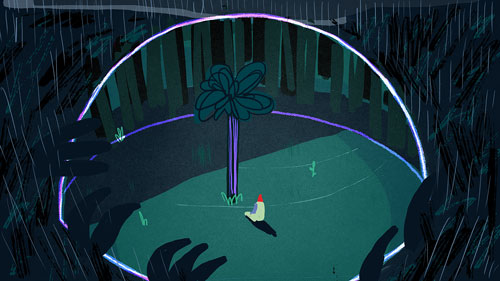
“I think the danger is when we are lured into a false expectation of reality, or a false sense of control, and it leaves us feeling deeply disappointed.” – エミリー・ダウン
The story of より良い, エミリーダウンの短編アニメーション実験映画, ファンタジージャングルを通過する1人のキャラクターの旅に基づいています. ジャングルは、理想化された世界が外部になるためのポータルとして機能します. The story explores the ways in which modern technologies and social media give us access to an imaginary existence that we are able to control. With social media, society has created a perfection bubble that sometimes makes it hard to show what’s really going on inside. How might this existence be impacting the mental health and well being of younger generations?
教育のためのグローバル検索 is pleased to welcome Emily Downe:
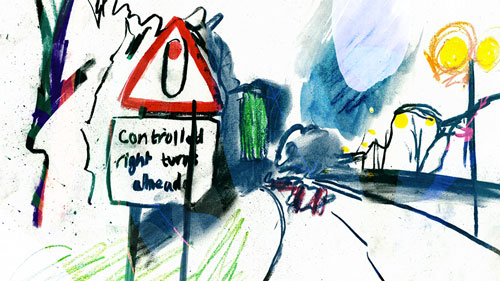
“Many people have also said that they really feel the anxiety of the character.” – エミリー・ダウン
Emily, I saw your film earlier this year at the Annecy Film Festival. Take us back to the moment when you found out you were nominated.
ありがとう! It was so unexpected and out of the blue, I think I got an email in the early days of lockdown so it was a lovely piece of news and encouragement in this weird time! I had been to Annecy for the first time last year so I was really looking forward to being able to go again this year and present my film, however it was still so great to be able to participate online.
What inspired you to explore the theme of a perfectionist culture? Was there a specific experience, personal or otherwise, that prompted your research and interest in this story?
I would describe myself as an idealist and a perfectionist; so in some ways the film is biographical. I’d had a few moments that year where my idealised bubble had burst and I found that it was unexpectedly freeing. So that’s what the film is about. It is also observational and research-based as I was seeing and discussing the same things with the people around me. I did a lot of research into perfectionism at the beginning and I was struck by the amount of articles online I found that said something along the lines of, “Life is about creating yourself; be more interesting, be funnier, achieve more, be better”. At first glance this sounds really great, but the problem is that the goal is infinite, and the result is that people can feel like they are constantly failing. With increasing technology and social media platforms, it also means that people begin to curate themselves not 作る 自分自身, setting up a false expectation of reality that can cause an increased amount of anxiety and depression, and sadly sometimes even suicide.
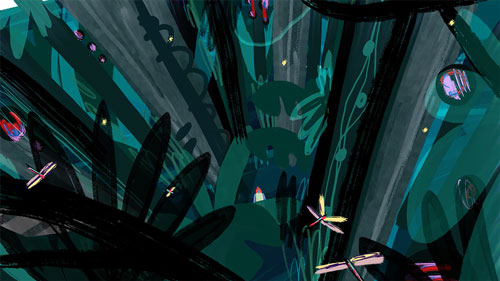
“People can see that it is a personal experience, but they can also see themselves in the story too.” – エミリー・ダウン
Do you think we (as a culture) are better or worse off with technology such as social media. What do you see as the main pros and cons?
There are definitely so many great things about technology and social media so I think we probably are better on the whole, but as with anything, it comes with a brokenness to it – it’s not perfect and the people who use it aren’t, so it is bound to do harm as well. As I tried to express in my film, I think the danger is when we are lured into a false expectation of reality, or a false sense of control, and it leaves us feeling deeply disappointed.
Any personal discoveries or interesting creative lessons made during the process of producing your animated movie that you had not considered before?
I set myself a lot of challenges in the making of this film, I hadn’t really worked with characters or narrative before. Nor had I worked on digital animation to this level as my previous films had been more experimental. But this film also isn’t a traditional narrative, so because of the complex nature of having these two different realities in two different styles, and trying to communicate a topic that has lots of layers to it, that was really challenging. I had in my head from the beginning how I wanted it to be but it took a long time to get there. I definitely learned to believe in my ideas more and to not give up until you get there.
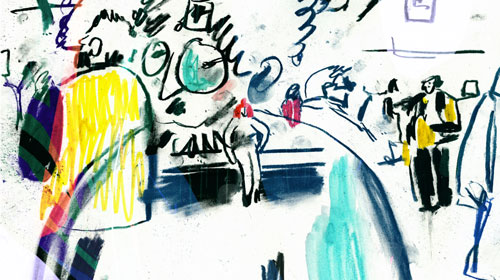
“I think the film speaks not only to people who use social media, but also the general human desire to control and cover over imperfection.” – エミリー・ダウン
What’s been the audience feedback to your film so far? Which audiences do you think your film speaks to most?
Lots of people have commented on the mix of different styles of animation, the observational sketch verses fantasized digital animation, and especially with the added frames of live action footage, which has that extra effect of jolting the viewer in and out of reality. But many people have also said that they really feel the anxiety of the character. People can see that it is a personal experience, but they can also see themselves in the story too. So I think even though the main audience would be the millennial generation, I think the film speaks not only to people who use social media, but also the general human desire to control and cover over imperfection, which isn’t a new concept.
What are some of the other themes and topics that fascinate you most? Any plans to develop stories for audiences on them in the future?
I’ve always been really interested in areas of science, philosophy and technology, and how they affect us as humans. I recently completed my MA in Documentary Animation from the Royal College of Art – より良い was my graduation film – so I am passionate about using animation as a means of communicating important topics in alternative ways. My previous film, The Redness of Red, was about artificial intelligence and consciousness, so I would love to do another film following on from that sometime in the future. But actually at the moment I am working on some ideas around sleep and rest – there is this cultural desire to eliminate rest completely, or as much as possible, seeing it as a waste of time, so I’d love to make this film sometime soon.
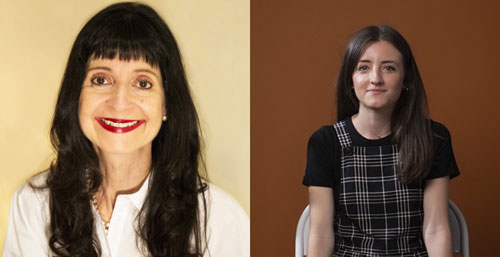
C.M. Rubin and Emily Downe
私たちにありがとう 800 プラス グローバル貢献, アーティスト, 教師, 起業家, 研究者, ビジネスリーダー, あなたを共有するためのすべてのドメインからの学生とソートリーダー との学習の将来についての展望 教育のためのグローバル検索 毎月.
C言語. M. ルービン (キャシー) CMRubinWorldの創設者であります, オンライン グローバルラーニングの未来に焦点を当てた出版社, そしてその プラネット教室の共同創設者. 彼女は3つのベストセラーの著者です 本と広く読まれる2つのオンラインシリーズ. ルービンは、受信しました 3 アプトン シンクレア賞「教育のためのグローバル検索」。シリーズ, どれ 青少年の擁護者, で発売されました 2010 まとめる キーを探求する世界中の著名なソートリーダー 国が直面する教育問題.
Cに従ってください. M. Twitterでルビン: www.twitter.com/@cmrubinworld

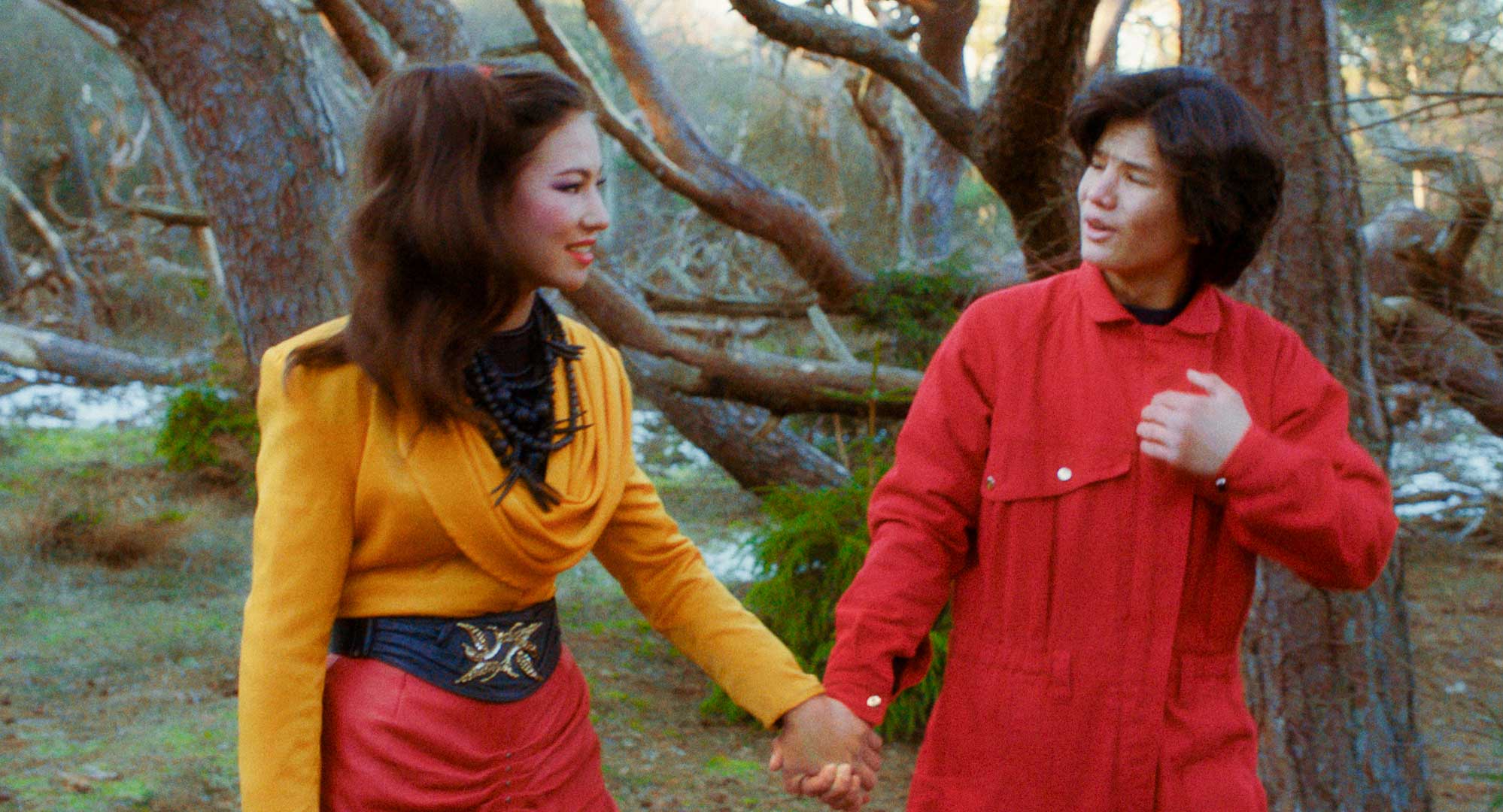

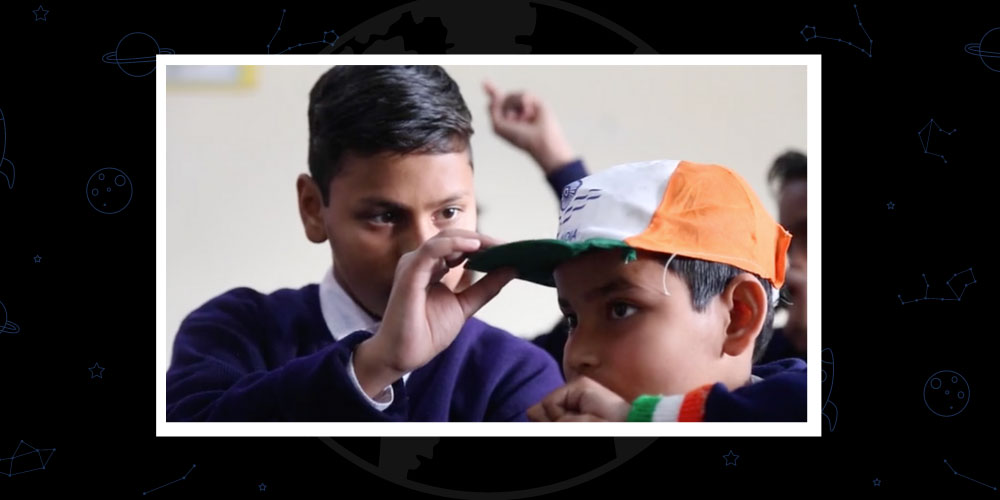
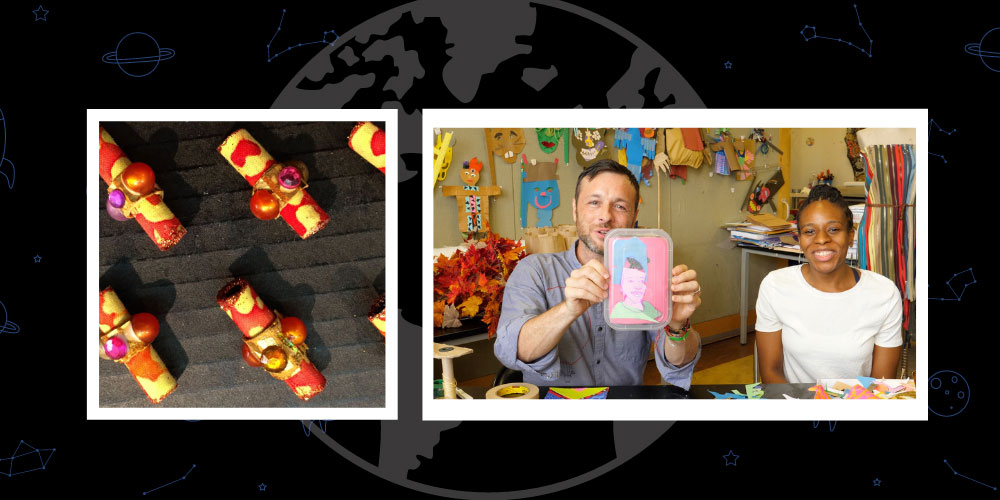
最近のコメント